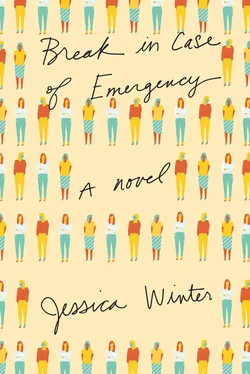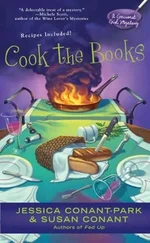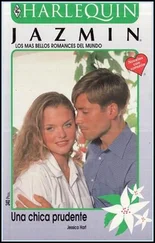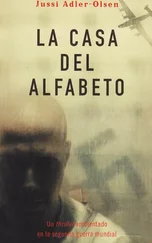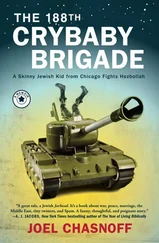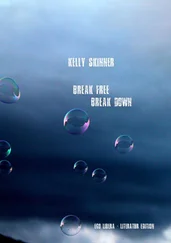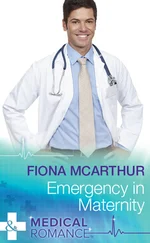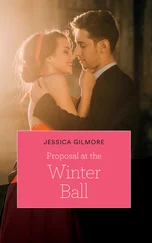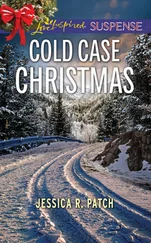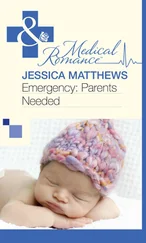The second important issue here is that I think if a pedestrian or cyclist gets hit by a car in the city where I live, or any city, there should be a police investigation, always, without exception. Because in my case — in my case—
— You put your life into the hands of the justice system, and you felt the justice system let you down.
Well, no, it didn’t even get as far as the courts. I thought I would be in court saying, “This driver was negligent, and the burden is on me to prove it, and I think I can prove it, but it’s up to the justice system to decide.” But the police were the gatekeepers to the justice system, and they closed the gate. They had multiple witnesses, tire tracks all over the place, even most of the license plate, and they might have even had security-camera footage, but we’ll never know because they didn’t follow up, they didn’t even find out if the footage existed. They probably would have investigated properly if I had died — and isn’t that crazy, that that’s the threshold for an investigation? Death? But instead it was like, “Well, whoops, it was an accident, sucks for you, but what can we do?”
Hey, you know what, Donna, could I do that part over again? I think I can do it more concisely and be more articulate. I shouldn’t say “sucks”!
Well, actually, Pam, I was going to stop you anyway, because — keep in mind that we are aiming for a very diverse nationwide audience, so we may not want to drill down so much into specifics on these points, which are very, well, specialized. Police matters and so forth. It might be fruitful to paint with a broader brush. Not so local, you see?
I think so. Yeah, no, you’re right, I can boil it down to talking points. I should be better at this — I watched so many cable-TV talk shows in the hospital.
Okay, let’s regroup and start again.
Sounds good.
Pam, what was the message this accident was sending you?
The message I have is — oh, wait, that wasn’t your question. Sorry.
Let’s try again. You’re doing really well. Okay. Pam, what was the higher purpose of this accident? Why did it happen?
I don’t — I don’t understand the question, I’m sorry.
Well, do you think the accident happened for a reason?
N-no. No, I don’t think the accident happened for a reason. I think I’ve tried to make some good come out of the accident, but it didn’t happen for a reason.
But the accident taught you something. So in a sense, couldn’t you say that it happened for a reason? That, in a way, it had a purpose?
No. No, the accident did not have a purpose. Two different things happened: The accident happened, and then I did things in response to it. That’s not the same thing as saying that the accident was purposeful — I mean, we keep saying “the accident,” but we’re talking about an enormous amount of suffering and pain, a year of my life in a sense lost to this, part of my body literally destroyed. So much pain. So it’s hard to talk about it like it was a cloud with a silver lining.
What did the pain teach you, Pam?
The pain — the pain didn’t teach me anything. Pain is pain. I don’t…yeah.
What I’m hearing from you is that bitterness was consuming you.
Huh. I don’t — you know, I — it’s weird, because at first I — um — at first I–I didn’t have much room for emotions. I–I was in pain all the time, for a long time, or else out of my mind on drugs. There’s a kind of — deranging effect of that, like I said before. And yeah, so — yeah, once the pain starts turning into just plain old severe discomfort and inconvenience, then the emotions start having room to move in, and you do feel angry, because someone did something terrible to you and there were no consequences.
You wanted revenge?
No, no. No, of course not. I’m not a vengeful — no. I wanted — look, imagine, this terrible thing has happened and no one is helping you make it better. I mean, that’s not true, your friends and family are helping and doctors and nurses and physical therapists are helping, and most of those people are being really awesome, but the person responsible for this isn’t helping, and he’s not being held responsible, and no one seems interested in holding him responsible. It’s like — me and my doctors and family and friends were held responsible for a crime we didn’t commit. That’s it, that’s it.
Because you discovered that you are responsible for your own life, and sometimes that’s a terrible burden, isn’t it?
Well, no, nobody is responsible for her own life, not entirely. You can imagine that you are, but then a truck comes out of nowhere and mows you down! That’s actually exactly the opposite of what I’m saying. I didn’t invite this into my life.
But you were responsible for your response to the situation.
Well, sure, to a certain point, but I was lucky. I know that’s a weird thing to say, given what happened, but it was. I had health insurance. I had love and support. I didn’t have a head injury — that right there, that was fantastic luck, life-changing luck. Sure, I was wearing a helmet, but nothing I did right then determined whether or not I received a head injury — you could be wearing a helmet and a truck could still come along and crush your skull.
You asked a minute ago if I was consumed with bitterness. I think what I was really consumed with was an obsession to tell people what I’d learned and make them act on it. I wanted young, healthy people to know that they needed health insurance. I wanted cyclists to wear helmets, always. I wanted my representative in Congress and my local police precinct to know that a crime had occurred, a real crime, not just an accident — because an accident can be a crime, and vice versa — and that resulted in gross bodily harm to me and emotional distress to my parents and my boyfriend and my friends. I wanted these powerful people to know that the police, who are entrusted to serve and protect, did not, in my opinion, serve and protect me. I wanted health-insurance companies to know how much completely unnecessary stress and tedium and frustration and worry they put their customers through when their customers are already depleted physically and emotionally — that it amounts to a form of abuse, truly. And I wanted drivers to know how much power they had to hurt people, and to feel sort of — to feel chagrined by that power. To feel the literal shape and weight of that power.
So you felt that the accident had made you a teacher, a leader.
No. I never felt that.
Everything you just said sounds like the words of a teacher and a leader. A teacher and a leader doesn’t have to be some wise old man on a mountaintop. What we’re talking about is simply the power of sharing our experience so that others can learn from it.
Well, I think it — it gave me a useful anecdote, I’d say.
But not everyone might have seen it that way. Some people might have just closed in on themselves, felt sorry for themselves. They wouldn’t have seen it as a teachable moment.
Well, I wouldn’t judge them for that. Believe me, I did plenty of feeling sorry for myself during that time.
You invoked the word power a moment ago. What I’m hearing is that you felt powerless, and you seized this chance to own your power.
I don’t — yeah, I don’t know.
Well, can we explore that idea together for a moment, Pam? That idea of empowering yourself in a moment of powerlessness.
I mean, yeah, sure, it gave me something to think about; it gave me an intellectual focus.
So that’s what the accident was there to teach you — that you had power, how you could use your power.
Читать дальше
